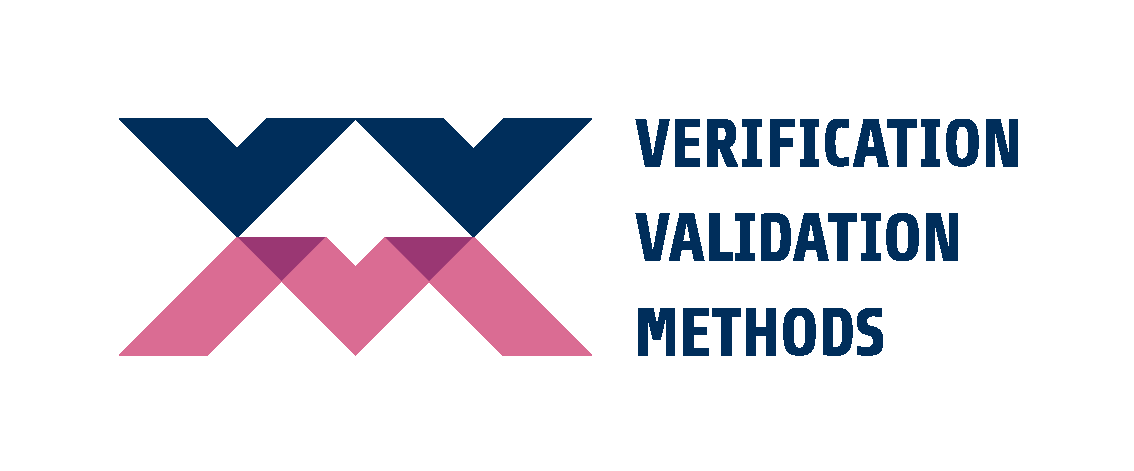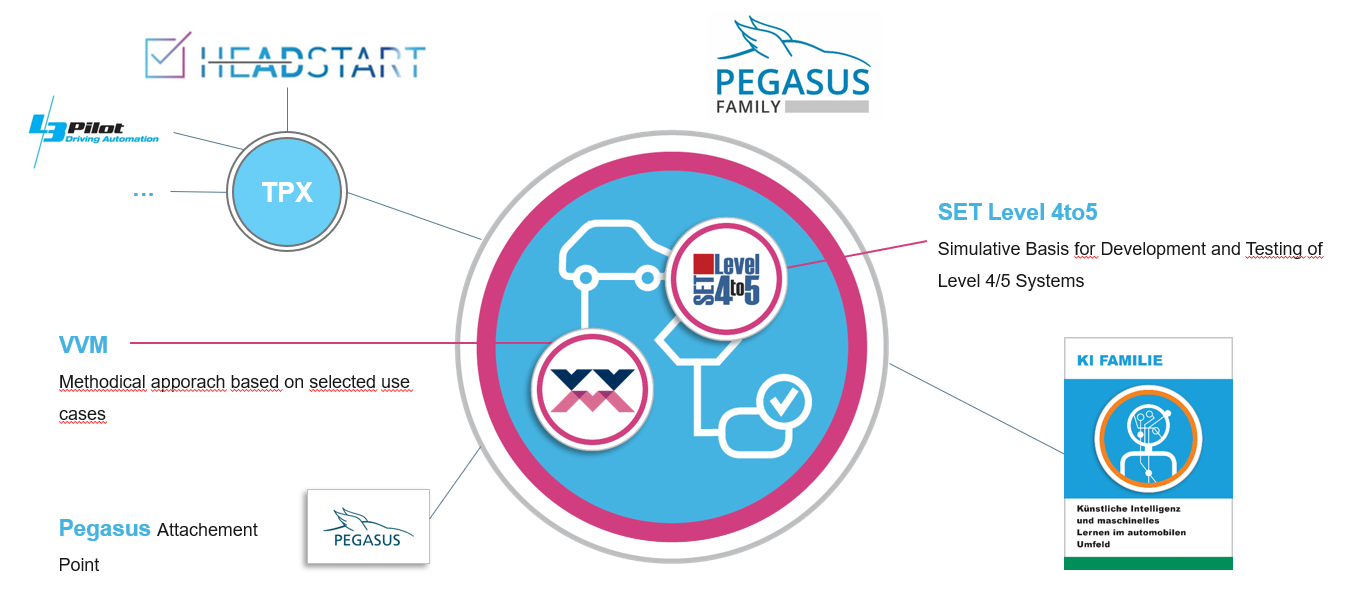V&V Methods
Verification and validation methods of automated vehicles Level 4 and 5
To introduce fully automated and autonomous driving, testing is an essential part. Funded by the Federal Ministry of Economics and Energy, 23 well-known partners from industry and research develop methods for the verification and validation of automated driving systems in the project V&V Methods. The project, with a duration of four years, tries to find legally secure as well as time- und cost-efficient solutions.
Within the introduction of fully automated and autonomous systems, the question occurs how to assure the safety of these systems.
Utilizing the complex use-case of urban intersections, V&V Methods demonstrates significant innovations in the interaction of virtual and real tests. A scenario-based data-driven approach is intended to be pursued. The V&V Methods project is based on the already successfully completed PEGASUS project and will build on its results and findings. Accordingly, the focus is to extend the methodology from SAE Level 3 to SAE Level 4+5, as well as from the motorway to urban areas. V&V Methods is a collaborative project with other projects closely linked to V&V Methods. These projects investigate aspects, such as simulation-based testing (SET Level4to5) and are organized in the PEGASUS Family.
The ika as sub-project leader is responsible for the development and prototypical implementation of the required databases for sensor data and parameterized scenarios as well as the associated database mechanics. With their help, the data required and generated in the project, for example from urban intersection situations, is processed centrally and scenarios are parameterized using different algorithms. Furthermore, a sensor database and data processing will be developed, which allows the focused checking of sensors in the vehicle. In addition, the ika plays a decisive role in the development of a criticality index, scenario concept and the creation of a uniform technical language amongst other tasks.
As a future collaboration, the IT-Center oft he RWTH Aachen will be included in the project next to the ika to contribute with its knowledge on databases. This is important for the implementation of the development database, which is utilized for the internal development of methods and concepts within the project itself.
Besides, the ika will leverage its extensive experience in other European collaborative projects and act as an interface to EU-level projects such as L3Pilot, heADstart and other international initiatives in Japan and the US to maximize synergies.

Contact
Dr.-Ing. Timo Woopen
Head of Vehicle Intelligence & Automated Driving
+49 241 80-23549
Email
Project duration
07/2019 – 06/2023
Project partner
Audi AG, AVL Deutschland GmbH, BMW AG, Bundesanstalt für Straßenwesen (BaSt), Continental Teves AG, Daimler AG, Deutsches Zentrum für Luft- und Raumfahrt (DLR), dSPACE GmbH, Fraunhofer e.V., Ford Werke GmbH, FZI Forschungszentrum Informatik, OFFIS e.V., Opel Automobile GmbH, PROSTEP AG, Robert Bosch GmbH, RWTH Aachen University, TU Braunschweig, TU Darmstadt, TÜV SÜD Auto Service GmbH, Valeo Schalter und Sensoren GmbH, Volkswagen AG, ZF Friedrichshafen AG
Project website
Supported by
![[Logo: BM Wirtschaft und Klimaschutz]](/images/foerderer/bmwk-en.svg)
Social Media
Presse Releases
11.03.2022: Förderprojekt VVM lädt zur Halbzeitpräsentation ein
Service
Cooperations
Address
Institute for Automotive Engineering
RWTH Aachen University
Steinbachstraße 7
52074 Aachen · Germany


![[Logo: Institute for Automotive Engineering (ika)]](https://ika.rwth-aachen.de/images/ika-logo-a-blau-blau-rgb.svg)
